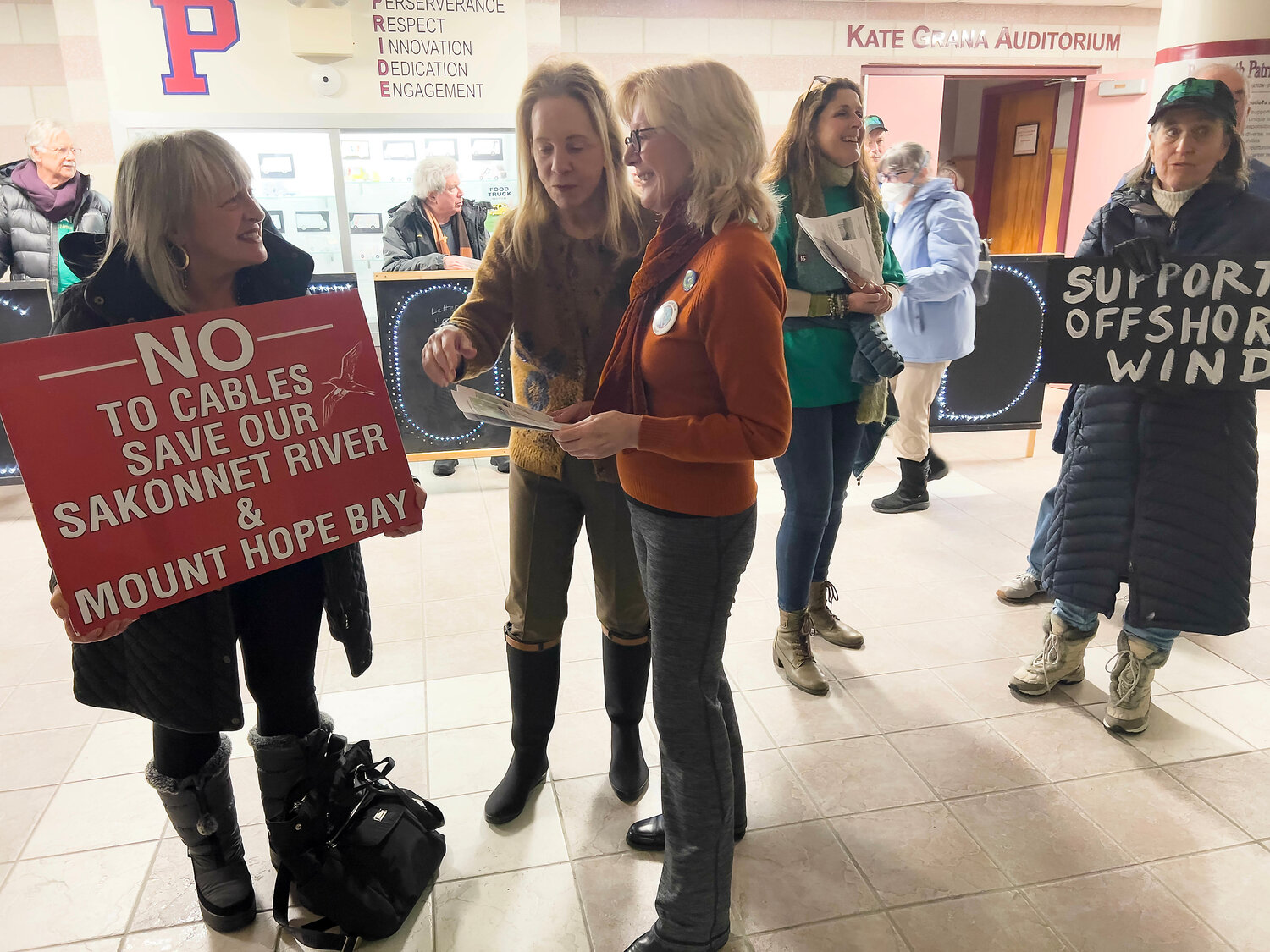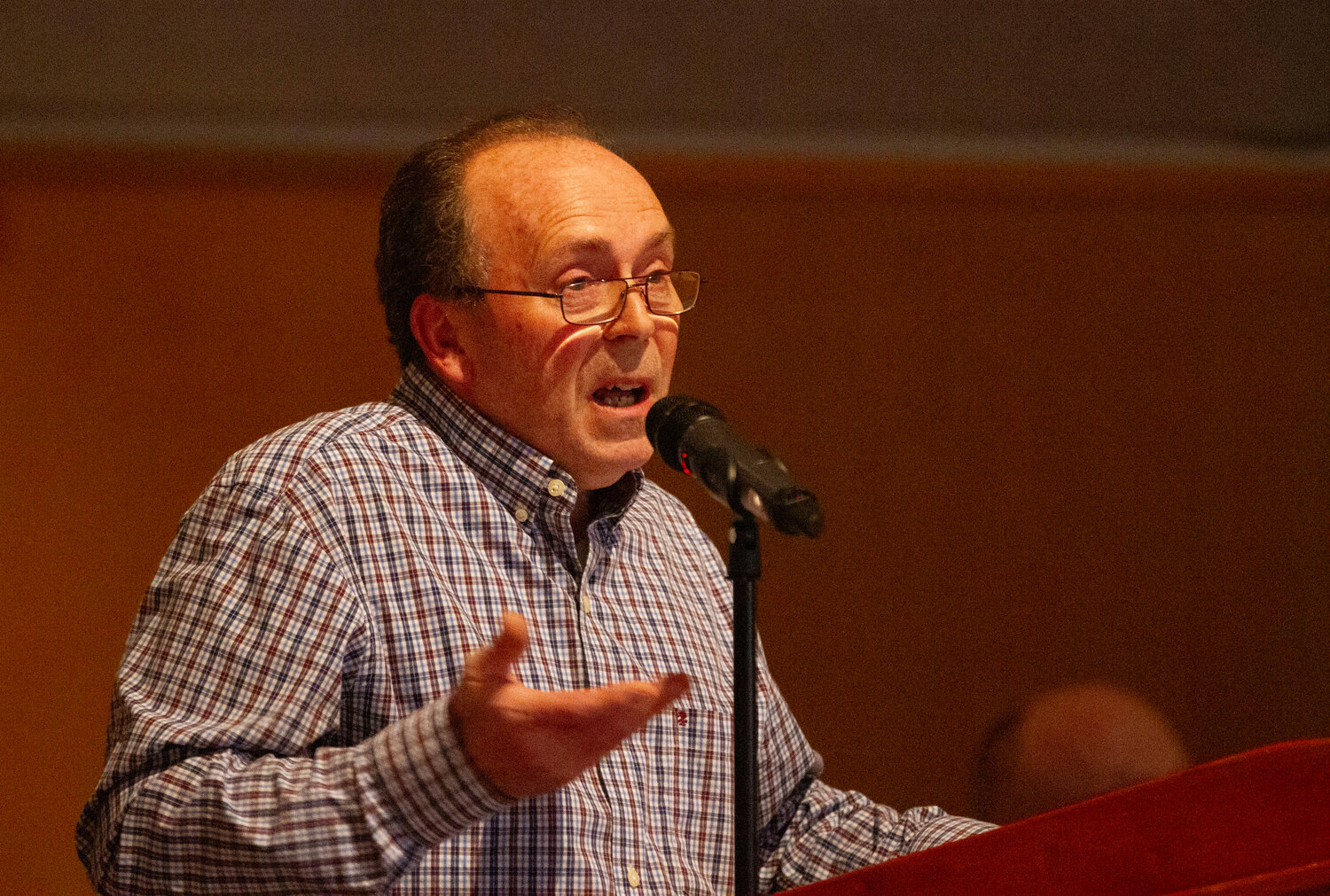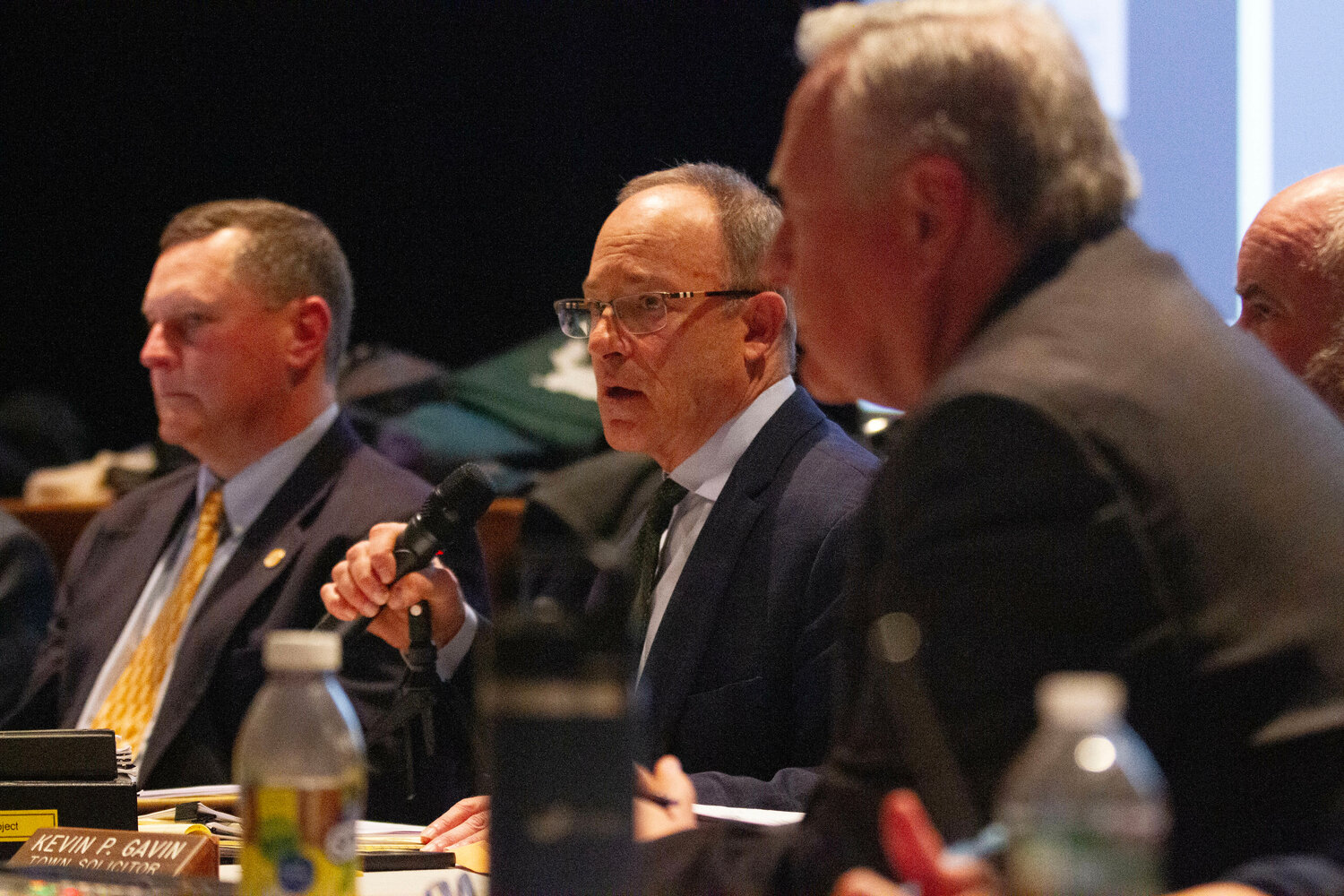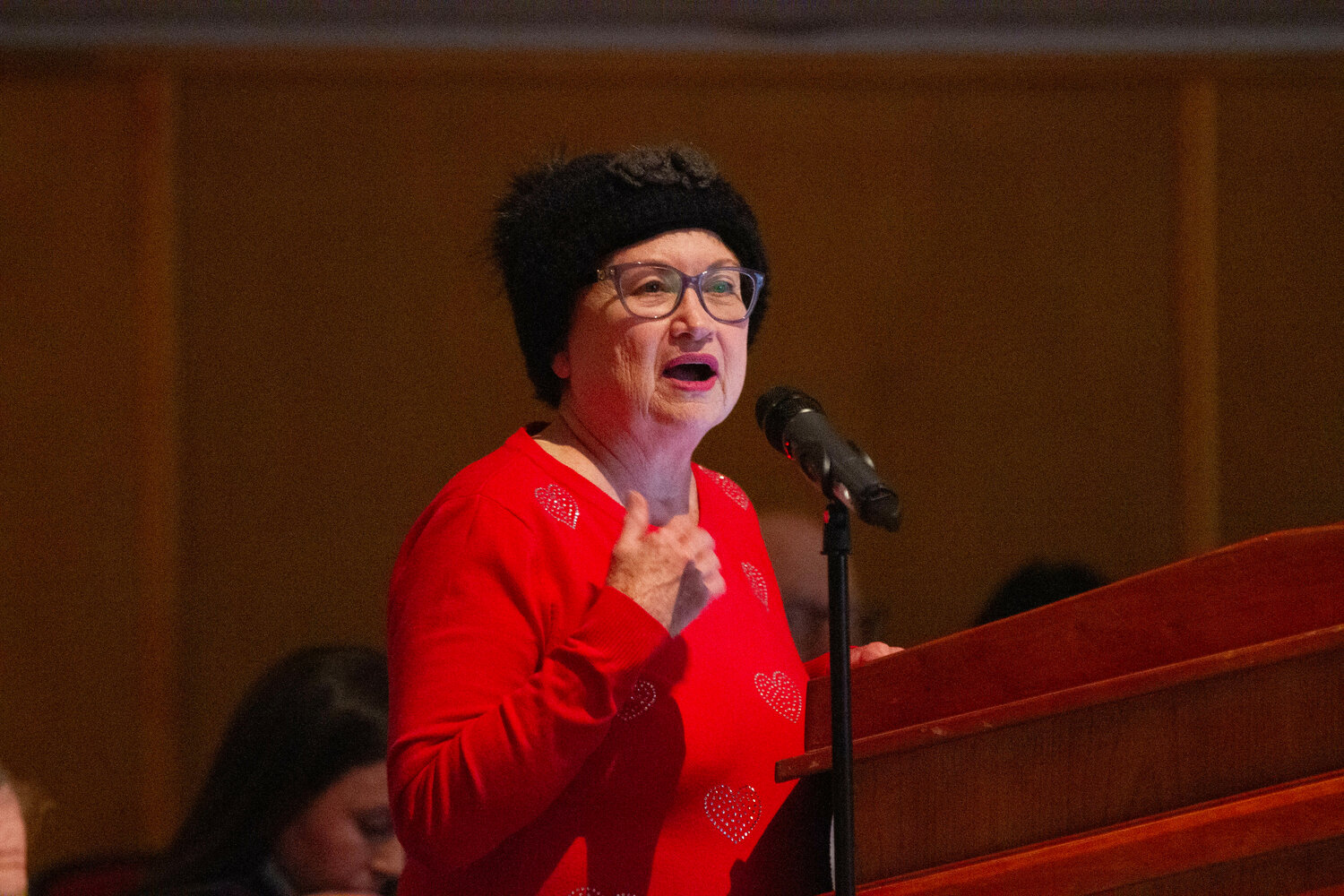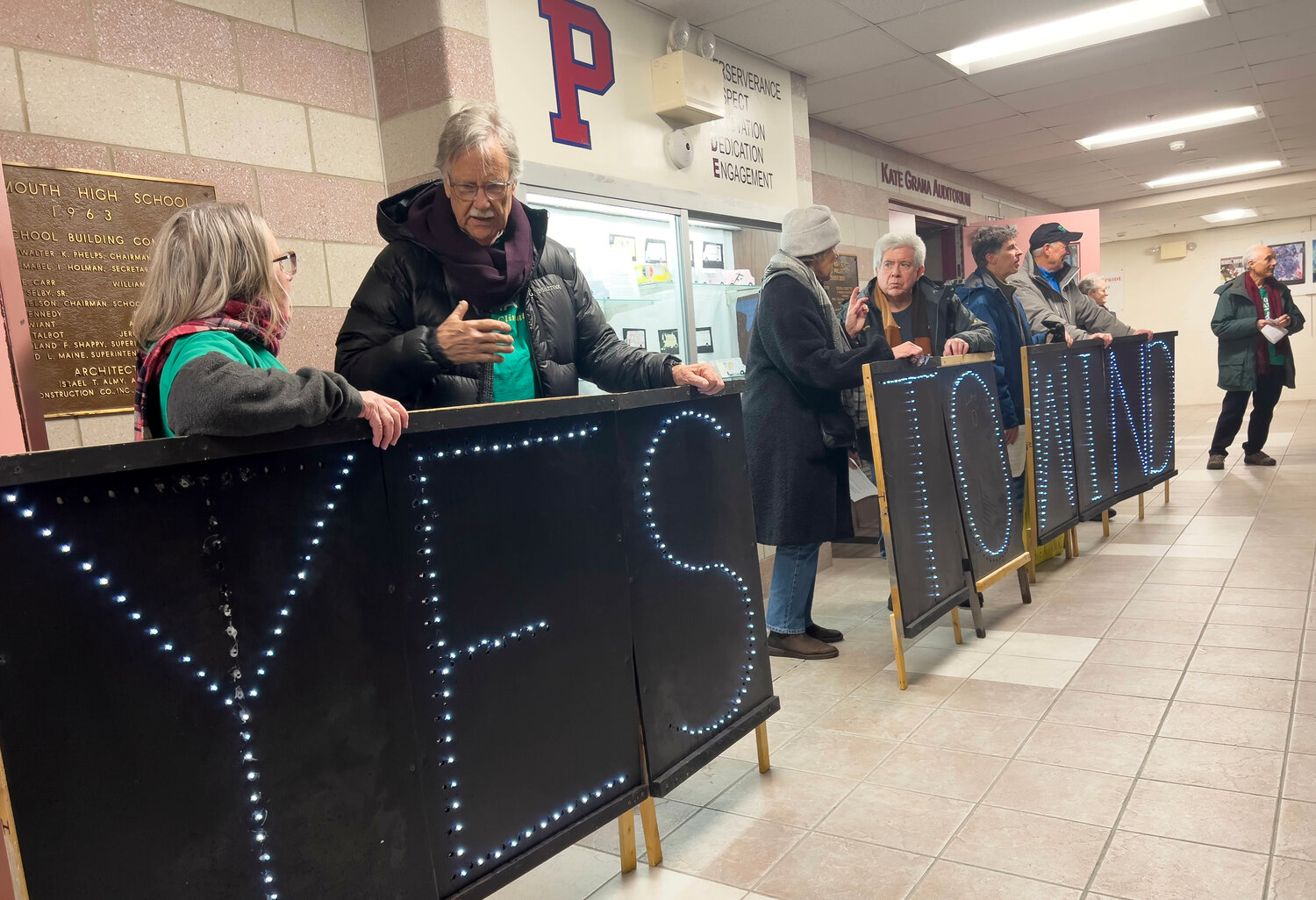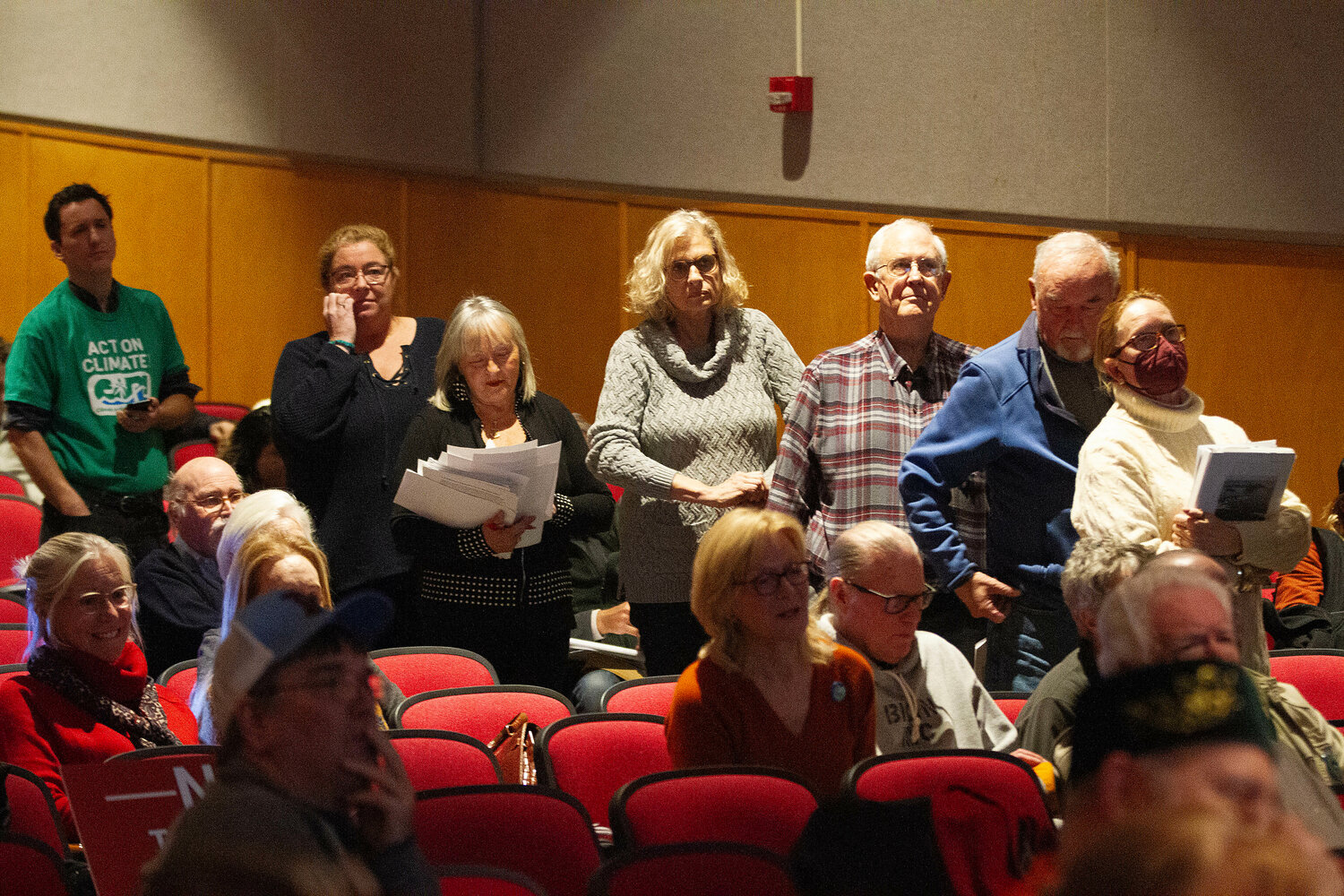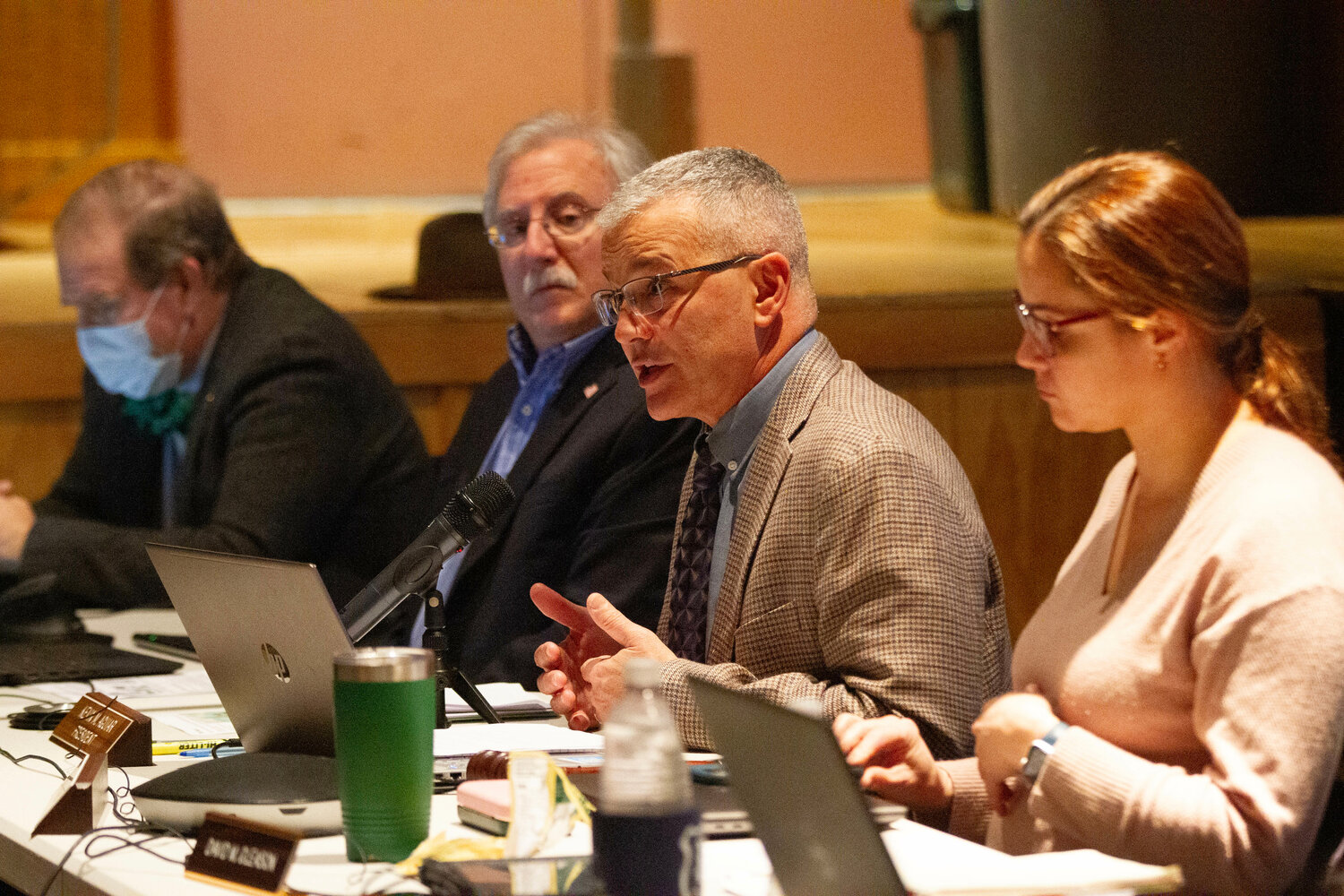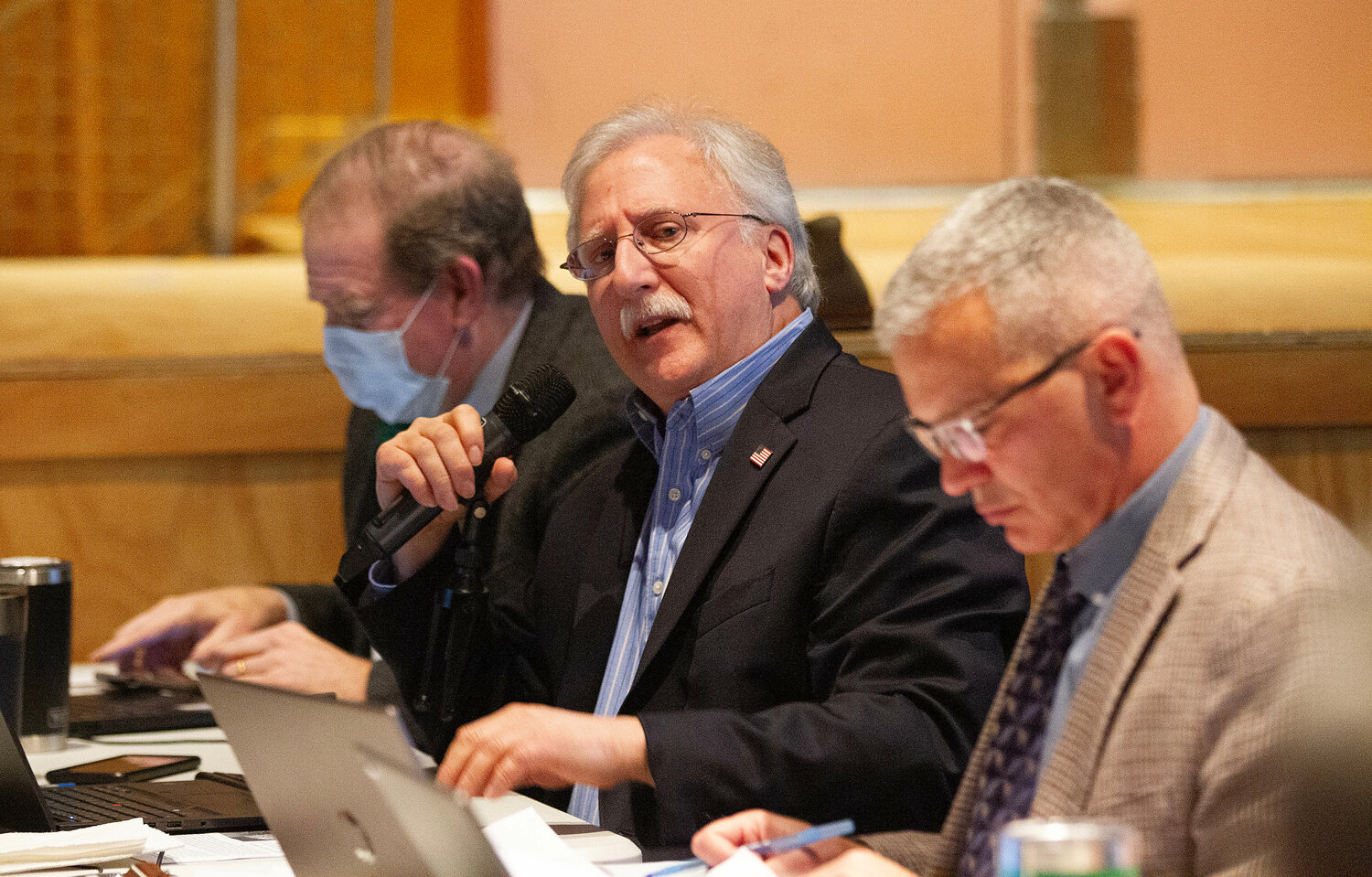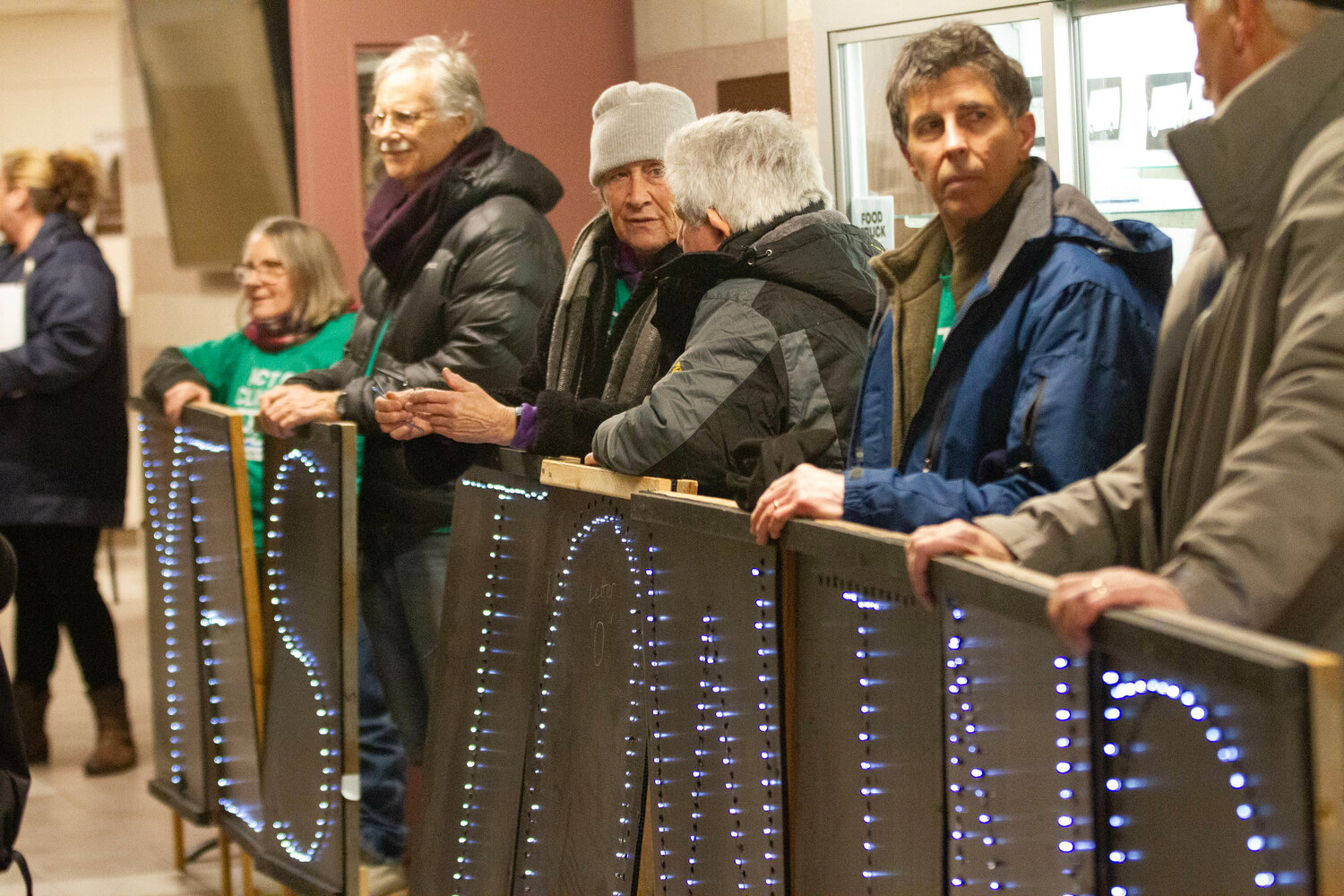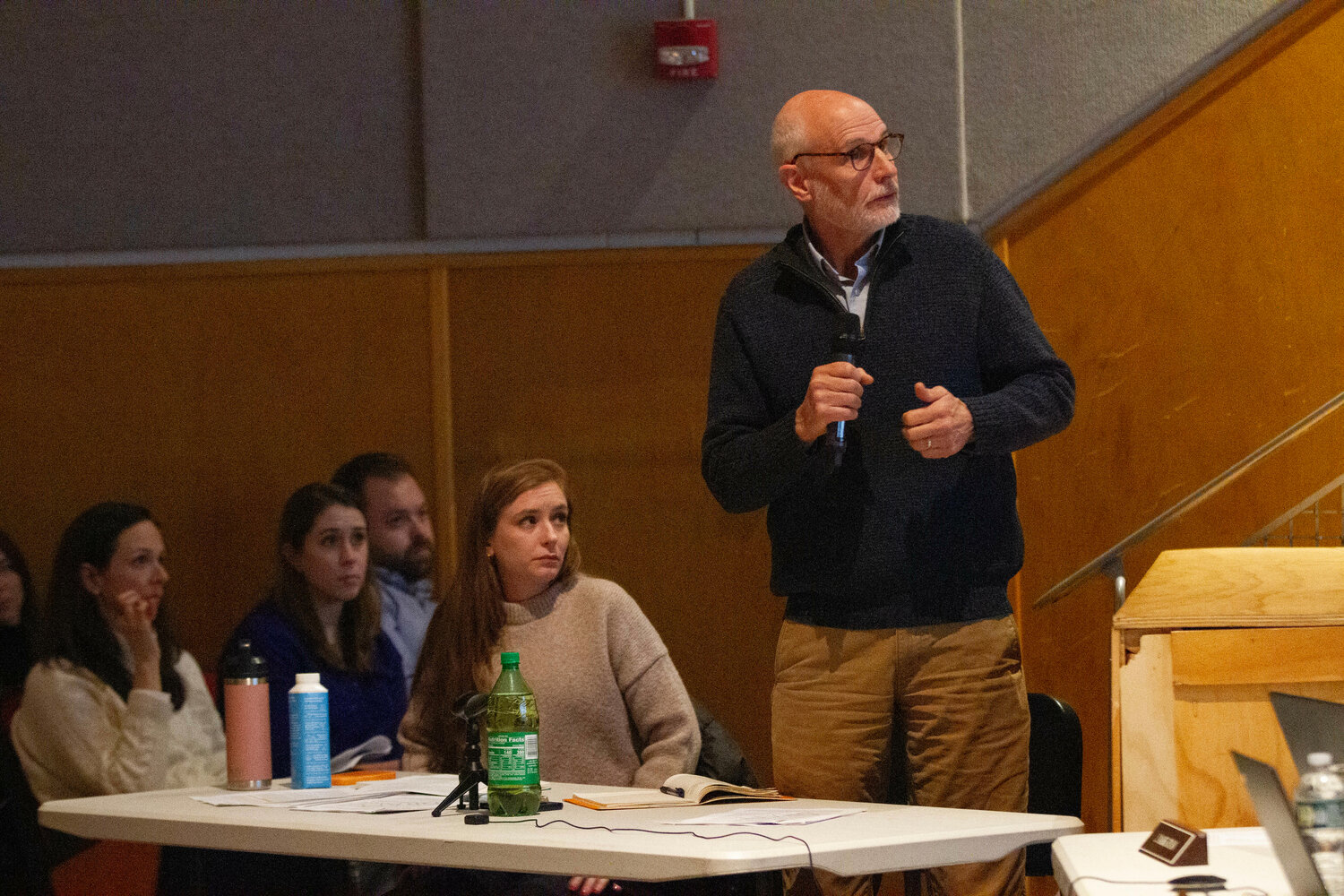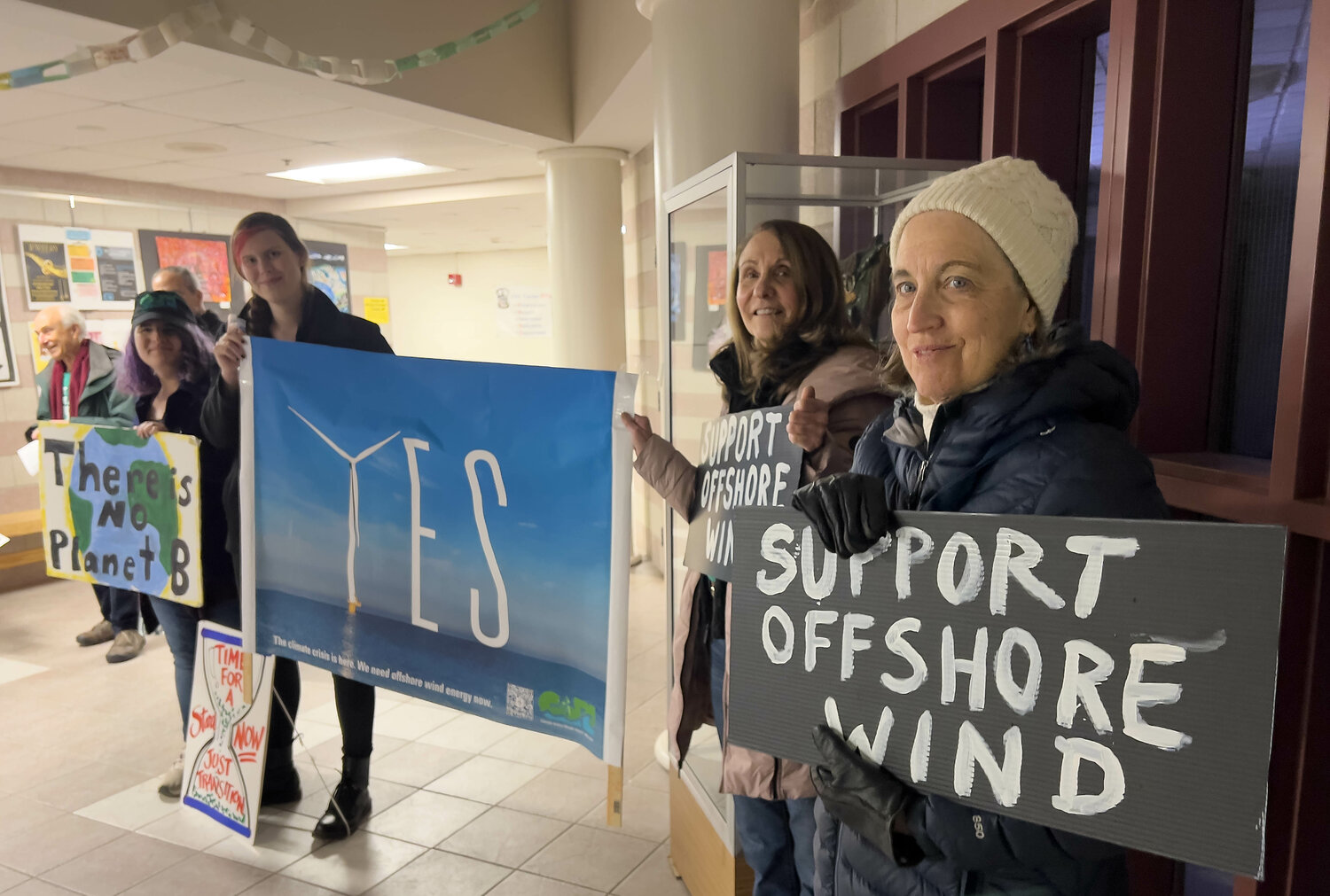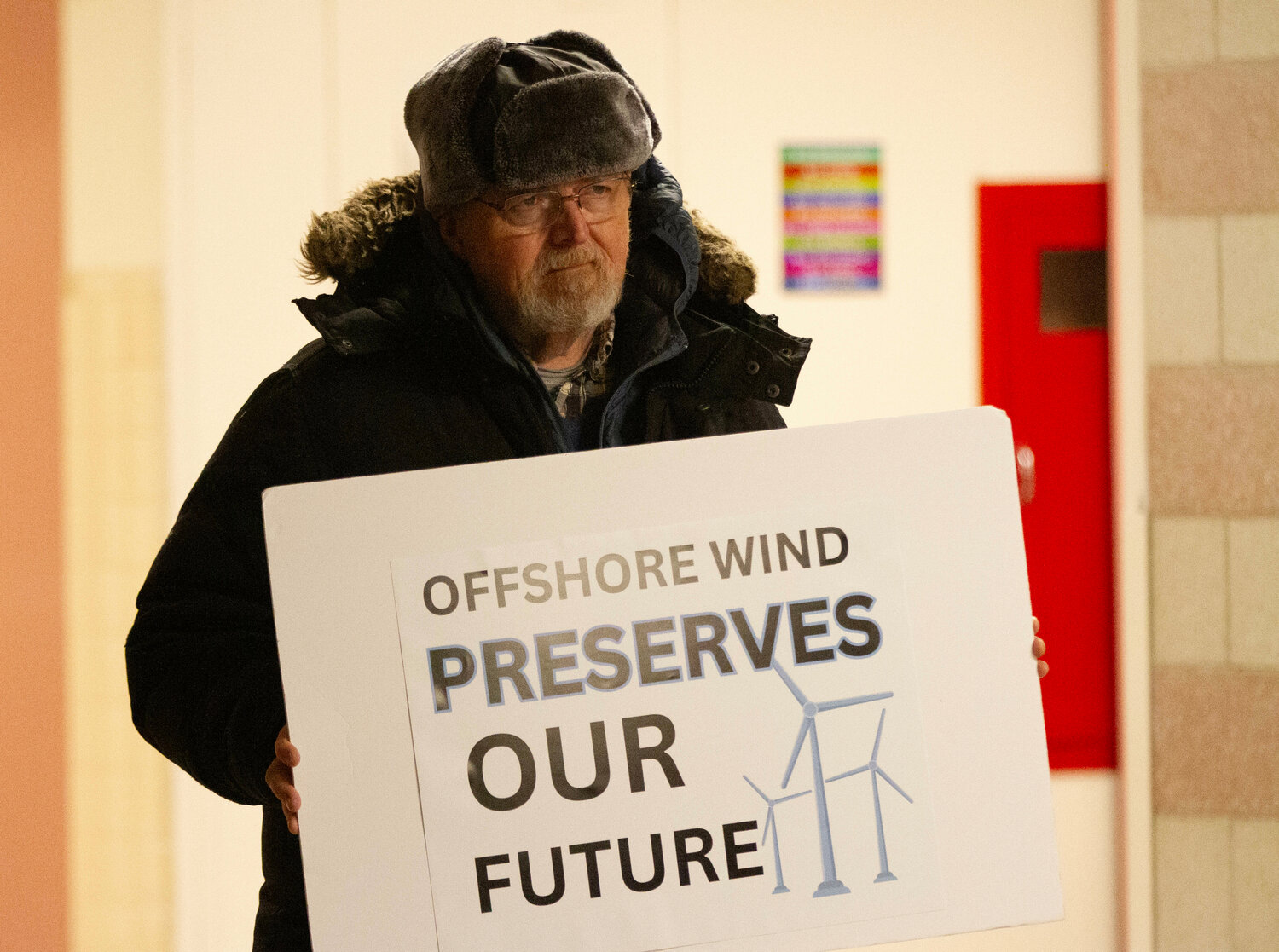- TUESDAY, JULY 16, 2024
Portsmouth enters host community agreement with SouthCoast Wind
Town can at least financially benefit from project that will inevitably be approved anyway, most members argue
PORTSMOUTH — After more than three hours of listening to both opponents and supporters of wind energy Tuesday night, the Town Council voted 5-1 to enter into a host community agreement …
This item is available in full to subscribers.
Please log in to continue |
Register to post eventsIf you'd like to post an event to our calendar, you can create a free account by clicking here. Note that free accounts do not have access to our subscriber-only content. |
Day pass subscribers
Are you a day pass subscriber who needs to log in? Click here to continue.
Portsmouth enters host community agreement with SouthCoast Wind
Town can at least financially benefit from project that will inevitably be approved anyway, most members argue


During Tuesday's meeting, council member Keith Hamilton said if residents want to "see how the sausage is made" by the R.I. Energy Facility Siting Board (EFSB), the panel will be here next week for a public hearing on the proposed permanent installation of Rhode Island Energy’s liquified natural gas (LNG) vaporization facility on Old Mill Lane.
Shortly afterwards, however, the siting board canceled that meeting, which was originally scheduled for 6 p.m. on Wednesday, Jan. 24, at Portsmouth High School.
A message posted to the town's website on Thursday, Jan. 18 stated the following: "The Siting Board was informed by Rhode Island Energy that the Company neglected to provide the required notice to the abutters to the project that there would be a public comment hearing on January 24.
"Similarly, the Company has not provided the required notice to the abutters for the evidentiary hearings within the statutorily mandated timeframe.
"As a consequence, the Board has canceled both the public comment hearing of January 24 and the evidentiary hearings that had been scheduled for February 12, 14, and 22. The public comment hearing and evidentiary hearings will need to be rescheduled. The parties and the public will be notified of a new schedule at a later date."
For several years the site has been used only as a seasonal option to meet peak demand during the colder months. However in April 2022, the company filed a supplemental application with EFSB, identifying the Old Mill Lane facility as its preferred long-term solution and to seek a full license
The EFSB is accepting public comment on the proposal to permanently install equipment, with a potential to expand on the site.
— Jim McGaw
PORTSMOUTH — After more than three hours of listening to both opponents and supporters of wind energy Tuesday night, the Town Council voted 5-1 to enter into a host community agreement (HCA) with SouthCoast Wind LLC, which wants to run underground transmission cables through a section of Portsmouth to transfer electricity generated by its off-shore wind facility.
David Gleason was the sole council member voting against the agreement. Council member Charles Levesque did not attend the hearing, held in the Portsmouth High School auditorium.
The evening began as a battle of the signs at first, as both critics and fans of wind energy flashed placards at audience members as they entered the PHS foyer just outside the auditorium. The anti-wind contingent has usually dominated such proceedings, but this time several members of Climate Action Rhode Island came out, holding a large LED sign bearing the words “Yes to Wind.” A few of them also took to the microphone during the hearing to support the HCA.
Under the HCA, the town would receive a total investment of $23.22 million over 33 years while receiving assurances that local construction impacts would be “minimized.” Also under the proposed pact, the town would agree to “not oppose the project and/or onshore export cables before the (EFSB),” the agreement states. Individual council members — like all other members of the public — can still raise concerns in testimony or comments before the various boards reviewing the plan, however.
A payment of $500,000 would be made to the town within 30 days before a schedule of annual payments of which a fixed portion, in the amount of $125,000 for each phase for the first 10 years of the project, would be allocated and deemed to be a payment in lieu of taxes (PILOT).
In year 11 of the HCA, the PILOT drops off and goes straight to a tangible tax, said Town Administrator Richard Rainer, Jr., who along with Alan M. Shoer of the legal firm of Adler Pollock & Sheehan, negotiated the agreement for the town with input from town staff. (Here's the original, marked-up version, and the "clean" one.)
Council member Keith Hamilton “grudgingly” voted for the HCA but said he was “personally torn.” While he had concerns about the project, he believed the R.I. Energy Facility Siting Board will ultimately approve SouthCoast’s application.
“If we say ‘no,’ we get nothing, and it goes right down Boyds Lane,” Hamilton said, adding that by entering the HCA, the town will receive a bare minimum of $500,000.
Council member Leonard Katzman agreed. He said SouthCoast has been “diplomatic” with their statements, but the developer believes “we’ll get this done whether or not there’s an HCA.”
Council member Daniela Abbott wholeheartedly endorsed the project. “If you don’t believe in climate change, you probably didn’t vote for me, because I do. It’s here. If the project is going to go forward, let’s make sure there is a benefit to Portsmouth. There is no solution to climate change that has zero impact,” she said.
According to council members, the funds the town would receive would not go into the general municipal budget but could be used for capital improvements such as resiliency projects, building better parks and the like. “There are lot of opportunities where that money could go,” Hamilton said.
Background
SouthCoast Wind (formerly Mayflower Wind) proposes to construct an offshore wind energy generating facility in federal waters approximately 30 miles south of Martha’s Vineyard and 23 miles south of Nantucket within a federal lease area. The plan calls for connecting that facility via export cables through federal and state waters and eventually to an electrical substation at Brayton Point in Somerset in order to connect to the regional electric grid.
To do that, the developers says they would need to run transmission cables up the Sakonnet River, beneath Island Park Beach, up Boyds Lane and Anthony Road, then north before reentering waters in Mt. Hope Bay and making final landfall in Somerset. One of the two proposed routes has the cables going under the Montaup Country Club, although it was revealed Tuesday that club members voted to deny SouthCoast an easement. Lawrence Mott, transmissions development manager for SouthCoast Wind, said the company will continue to look at the best routes.
The proposal has generated considerable opposition from many residents who claim running transmission cables up the Sakonnet River will do irreparable harm to marine life, and in extension recreational and commercial fishing. Some also say offshore wind is not a viable solution to climate change, there are more suitable routes for the cables than up the river and over Portsmouth, the project will benefit Massachusetts and not Rhode Island, and more.
Their charges have been sharply disputed by many scientists and proponents of renewable energy, who say that opponents have greatly exaggerated the negative impacts of offshore wind and have made logical fallacies in their arguments.
Going off script
However, that wasn’t on the table Tuesday night, as Council President Kevin Aguiar kept reminding speakers who wanted to debate the merits of offshore wind. Time and time again, Aguiar asked them to stick to the topic on the agenda: the HCA only.
The plan is currently under review by EFSB, which will ultimately decide if it goes forward; the council, along with many other groups, can submit only an advisory opinion on the project to EFSB, Agiuar said.
“We do not have the authority to approve or deny the project. (EFSB) is asking us to weigh in on areas that the town has jurisdiction,” he said.
That could include a noise variance, construction impacts or soil erosion, he noted. Anything to do with concerns over wetlands or the Sakonnet River would be taken up by the R.I. Department of Environmental Management and the R.I. Coastal Resources Management Council, and residents have plenty of opportunities to make public comment before the various agencies reviewing the application, Aguiar said.
Still, speaker after speaker went off script. One of them was Corey Wheeler Forrest, a commercial fisherman from Portsmouth who raised concerns about the project’s impact on fisheries. Those same objections were raised by Katie Egan of Prudence Island, another fisherman who said her business “relies on a healthy and productive ecosystem.”
Peter Hewett, of Bristol and a member of the Montaup Country Club, dismissed the very need for wind turbines. “For all of you who believe in climate change and that the earth is going to implode because of climate change? It’s a hoax,” he said.
Several speak in favor
Several audience members urged the council to sign the HCA, however. One of them was Susan Comeau of Island Park.
“I find the greatest threat to our oceans and beaches the burning of fossil fuels,” she said. “We have the opportunity to be part of the solution. I want you to move forward with the HCA for the sake of our children, for the sake of planet earth. For me, it’s not about the 23 million, but it’s about showing our grandchildren that we tried to stop global warming because all our fish are going to be dead if we don’t. Save our oceans.”
Christian Roselund of Providence, who was wearing a Climate Action Rhode Island Shirt, said the town is getting “a hell of a deal” through the HCA. “You’re being given a minimum of half a million dollars to potentially allow a cable to be buried. Underground cables are a lot less impactful than over-ground cables, and it’s great that you’re getting an underground cable.”
Roselund, who works as an energy policy analyst, also took aim at some of the anti-wind testimony he heard Tuesday night.
“It’s really remarkable that these conversations have been dominated by conspiracy theories and absurdities. Tonight I’ve heard climate change denial, I’ve heard claims that a European collaborative is Chinese-owned, I’ve heard unsubstantiated claims of bribery, I’ve heard unsubstantiated claims that this will indebt Portsmouth by someone playing an amateur lawyer,” he said.
The claim regarding indebtedness was made by Sal Carceller, of Lepes Road, the very first speaker and one of the few who actually stuck to the HCA. He said under state law, the council had the authority to negotiate only a 10-year agreement, not 33.
“You’re making an enormous decision to sign an agreement that can indebt Portsmouth for 33 years,” said Carceller, who opposed the HCA.
Katzman, however, said the town is following the law because it’s not entering into a PILOT for longer than 10 years.
Carceller also charged that once the HCA is signed, the town agrees not to oppose the application. “They could decide to put the lines overhead. I’m just looking at this if this were my land. I’d be concerned. To me, it seems Portsmouth would be giving up all its rights to any objections,” he said.
Larry Fitzmorris, president of the watchdog group Portsmouth Concerned Citizens, questioned the negotiating process. Since the HCA will impact so many citizens, he argued, it should have been done in public.
“We do not negotiate any contracts in public,” replied Aguiar, noting the council previously announced it would vote on the HCA in public. “And that’s what we are doing. That’s pretty much how all of our contracts and agreements work.”
Tom Grieb said the council shouldn’t sign the HCA because there are too many unanswered questions. The financials included in the agreement don’t even add up correctly, he said, and the town would be receiving only “minor” payments in the latter portion of the contract.
“Portsmouth does not have enough information to sign this agreement right now. What’s the rush?” Grieb asked.
Gleason asked the same question, and said the HCA “attempts to gag the town.” He also said he was “in the dark” about how the negotiations were carried out, and was taken aback by the changes made to the contract just days ago.
Katzman acknowledged that he provided some input on the HCA’s language, which led to some “minor” changes. “The new text helps Portsmouth because it makes (SouthCoast) consent to the jurisdiction of the Rhode Island courts,” he said.
SouthCoast’s response
On Wednesday, Rebecca Ullman, director of external affairs for SouthCoast Wind, said the developer is grateful to the council and looks forward to a long partnership with the community.
“This approval is another positive step on the path toward developing our offshore wind project which we continue to permit at the federal, state and local levels. The 2,400 megawatts of clean electricity SouthCoast Wind expects to generate is vital to helping New England states meet their mandated greenhouse gas emissions goals. SouthCoast Wind is committed to delivering on the promise of renewable offshore wind energy with new jobs, economic growth, and cleaner air,” she said.
Keywords
SouthCoast Wind, wind energy, Sakonnet River, Portsmouth Town Council, EFSB, Energy Facility Siting BoardOther items that may interest you

